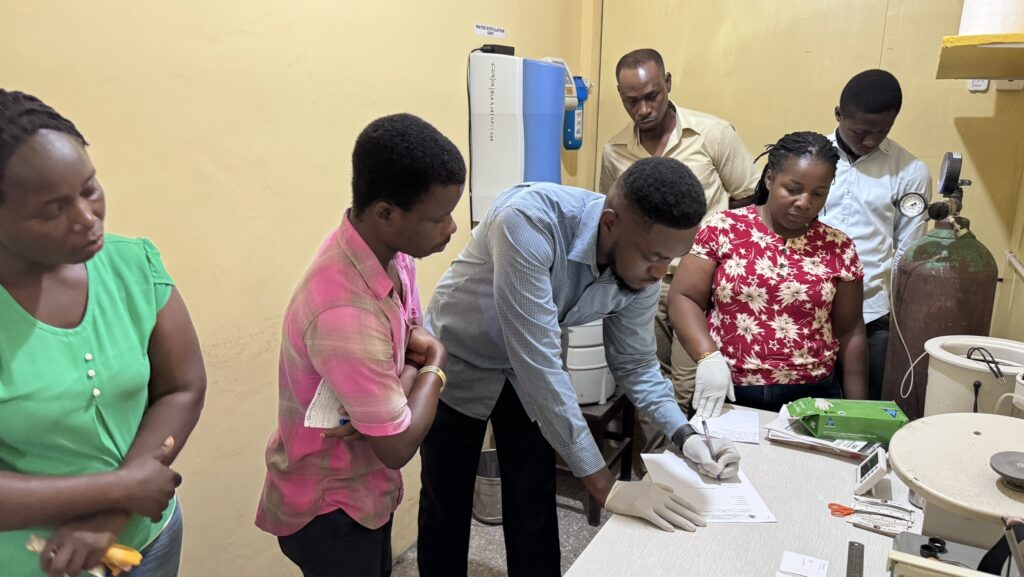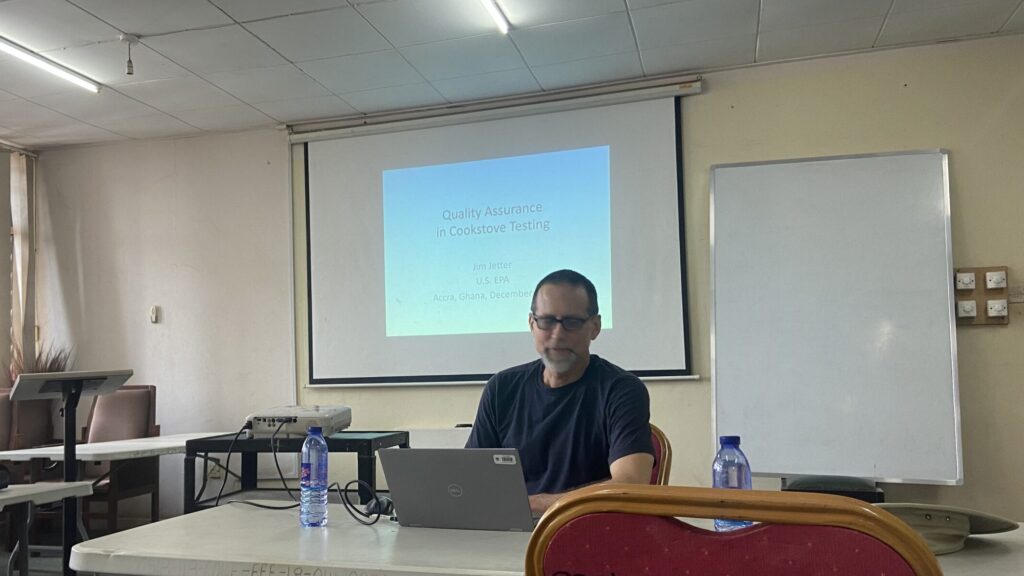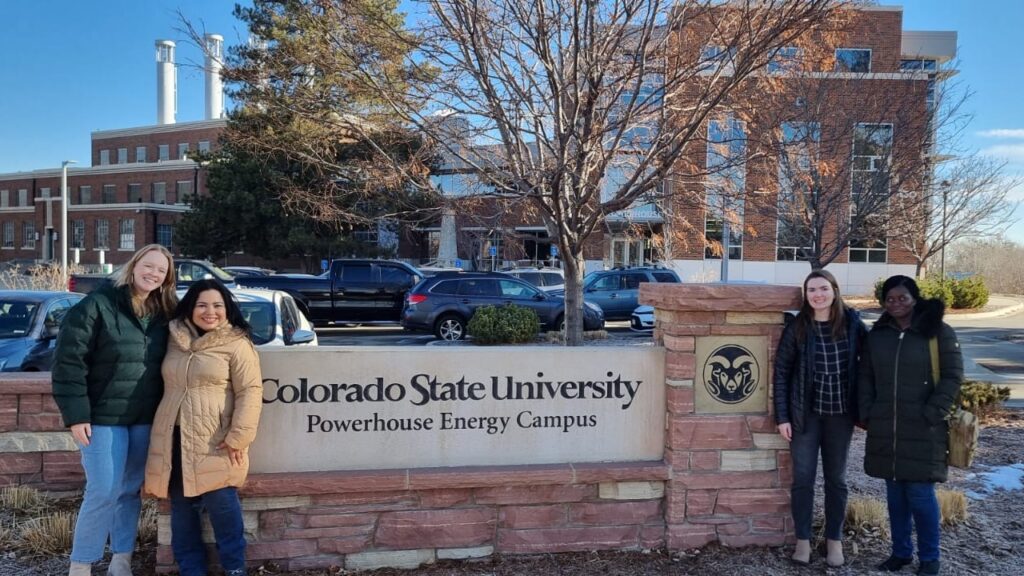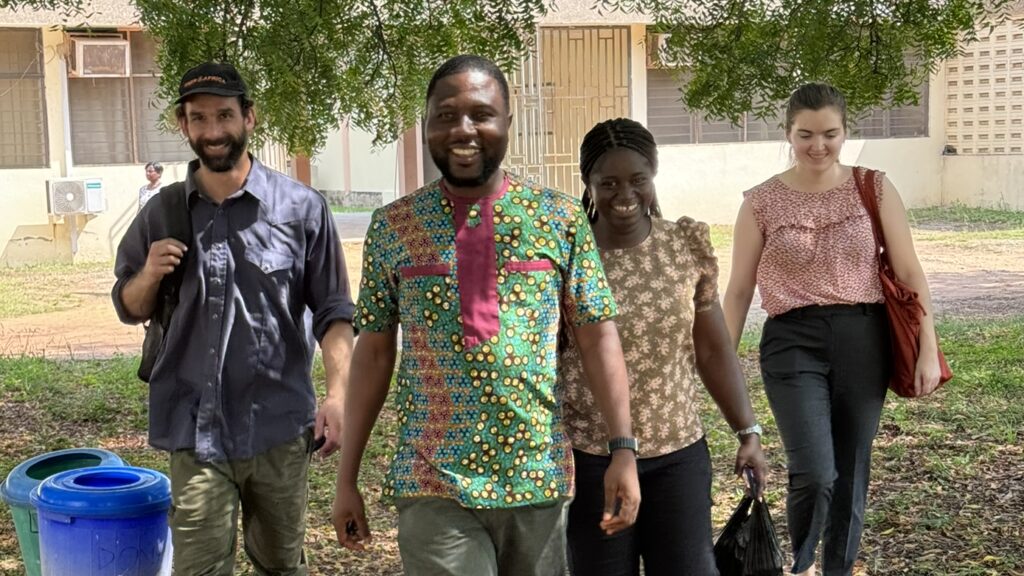Enhancing Expertise: Two Trips on Cookstove Testing
In my role as Manager, Evidence and Impact, at the Clean Cooking Alliance (CCA), I have the privilege of working closely with household energy experts around the world. Among them are experts from nine testing labs in seven countries, who participate in CCA’s Round Robin Testing Program. This initiative was started to ensure labs are able to test cookstoves uniformly in accordance with the International Organization for Standardization’s methods, so that labs produce similar results no matter where in the world they are.

On recent trips to Accra, Ghana and Fort Collins, Colorado I learned just how important it is to have a network of qualified testing laboratories with experts on the latest cookstove testing protocols, and meet with many of the established experts and emerging young researchers in the field.
My first trip was to the Council of Scientific and Industrial Research – Institute of Industrial Research (CSIR-IIR) in Accra, run by Dr. Gloria Boafo-Mensah and Dr. Ferdinand Tornyie. Here I was able to observe the team conduct many of the processes fundamental to reliable cookstove testing.
For example, fuel analysis, which is important because if one lab tests a charcoal stove using charcoal with a high carbon content and another lab tests the same stove using charcoal with a significantly lower carbon content, the emissions results will be different, even if the testing was performed in the exact same way.

We also covered the importance of the carbon balance method, explained in a presentation by Jim Jetter, Environmental Engineer at the U.S. Environmental Protection Agency (EPA). The carbon balance method is when the measured mass of carbon released from fuel equals the measured mass of carbon in emissions. Jetter shared that this is a required phase in every testing process – important for quality assurance, increasing confidence in testing results, and troubleshooting any issues.
Meeting the larger CSIR-IIR team of staff who conduct all the testing, and seeing the testing process from start to finish, gave me a newfound appreciation for the experts who do this work and the meticulous nature of this process.
After sunny Accra, I later traveled to wintry Fort Collins, where I had the opportunity to learn from the experts at the Center for Energy Development and Health (CEDH) Advanced Cookstove Laboratory at Colorado State University (CSU), including Dr. Christian L’Orange, Associate Director. I was joined on this trip by Jessica Kroenert (U.S. EPA), Victoria Cortes (Zamorano University, Honduras), and Gloria (CSIR-IIR) In-person meetings allowed us to have cross-organization conversations about challenges each lab has experienced and how we can work to overcome them.

CEDH experiments with a wide range of technologies and processes relevant to cookstoves testing. For example, CEDH is refining the use of personal exposure monitors (e.g., systems like the UPAS), which evaluate the level of emissions household members are exposed to when they cook. The resulting data can help us understand how clean cooking solutions can reduce emissions from cooking and improve the health of people all over the world.
I also met with students in the CEDH research group, learning more about the latest research coming out of the lab. There is vast potential for youth in the household energy and clean cooking sectors, especially those who want to work with established experts. This is especially true in the development of standards and testing methodologies, where a large and diverse group of voices needs to be engaged for the process to be successful. However, youth cannot be involved if they are not trained in the latest standards and best practices.

This is especially true in the development of standards and testing methodologies, where a large and diverse group of voices needs to be engaged for the process to be successful. However, youth cannot be involved if they are not trained in the latest standards and best practices.
After seeing firsthand the work of the teams at CSIR-IIR and the students at CSU, I am confident that clean cooking is well placed to benefit from the knowledge and commitment of young experts. As a young professional myself, who began a career in clean cooking at the end of 2019, I look forward to applying my newfound knowledge in building a stronger sector supported by robust testing data.
